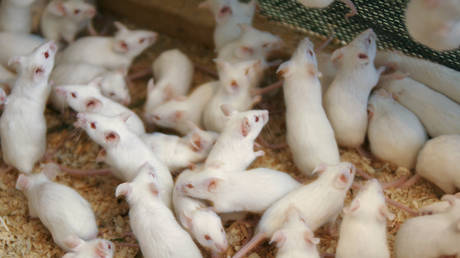
A new study in which scientists extended the lifespan of laboratory mice by 23% through a special protein may pave the way for humans to celebrate 120th birthdays, its authors said.
Israeli scientists have boosted the supply of SIRT6 protein – which “controls the rate of healthy aging,” but usually declines in the system with age – in 250 mice and achieved some incredible results. The life expectancy of their test subjects not only increased by 23%, but they were also more youthful and less susceptible to cancer compared to ordinary mice, a peer-reviewed paper, recently published in the Nature Communications journal, has revealed.
“The changes we saw in mice may be translatable to humans, and if so that would be exciting,” Prof. Haim Cohen of Bar-Ilan University, who spearheaded the research, told the Times of Israel newspaper.
If humans receive an equivalent protein boost their average life expectancy could reach almost 120 years, he said. In 2019, before the Covid-19 pandemic, the UN estimated the average life expectancy was 72.6 years.
Cohen’s lab is currently looking for ways to safely increase the levels of SIRT6 protein in people. The mice were genetically modified, but humans would require drugs to achieve the same effect.
“We are developing small molecules that may increase the levels of SIRT6, or make existing amounts of the protein more active,” the scientist said, adding that he expects concrete results in two or three years.
Cohen has been working on the issue for a long time, and already reported a 15% increase in the life expectancy of mice in 2012. However, his remedy only worked for male rodents back then.
The new study, which was a collaboration of international scientists including Prof. Rafael de Cabo of the US National Institutes of Health, has seen a major improvement. Male animals were living 30% longer than their counterparts from the control group, while the life expectancy of females also grew by 15%.
The symptom of aging in mice is the loss of the ability to extract energy from fats and lactic acid after a small period without food. But, according to the paper, the animals with high levels of SIRT6 didn’t have such a problem despite their older age. Moreover, their lives weren’t just longer, but of better quality, as they had less cholesterol, showed fewer cases of cancer and could run faster.
Think your friends would be interested? Share this story!




